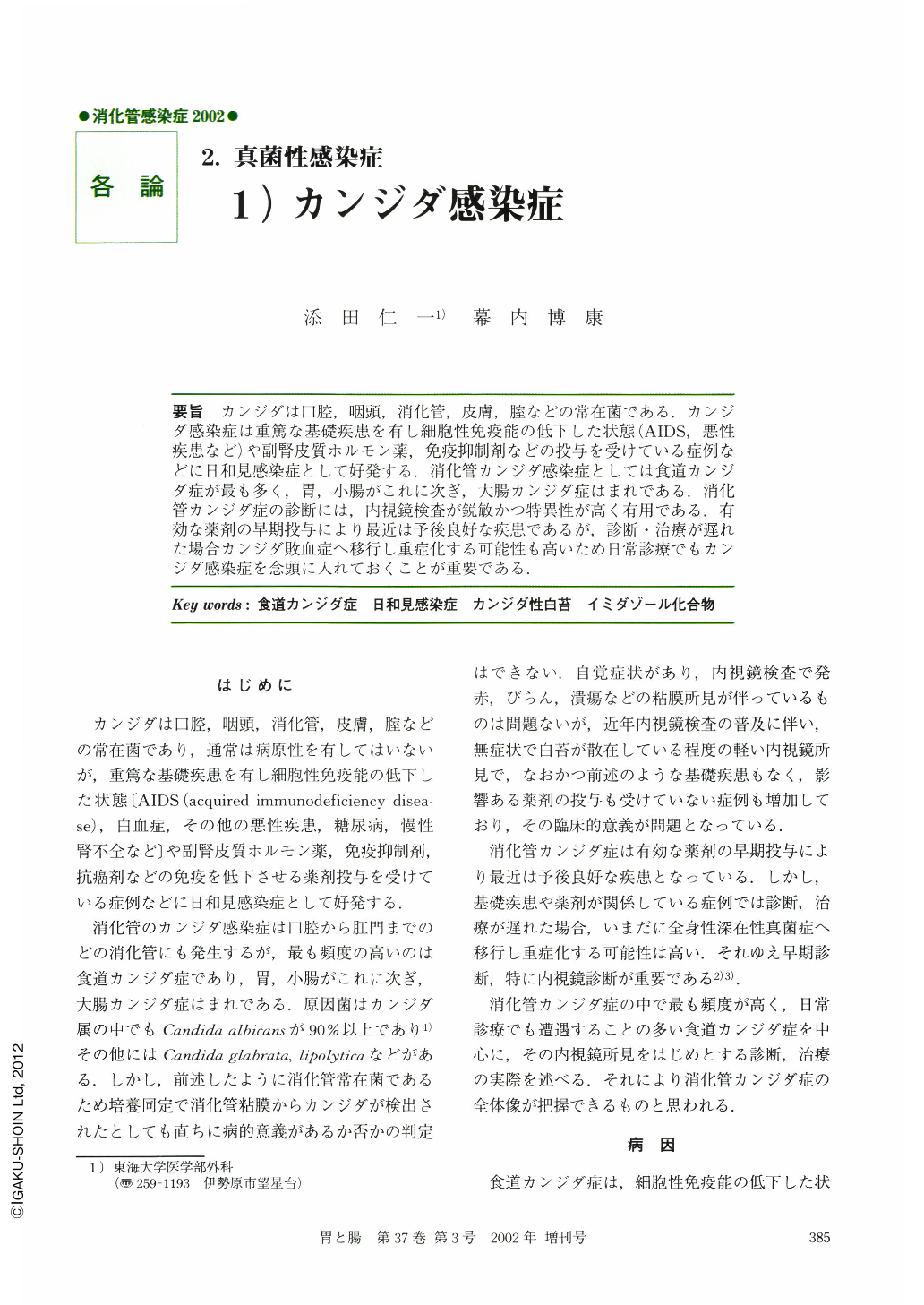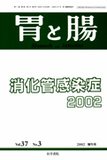Japanese
English
- 有料閲覧
- Abstract 文献概要
- 1ページ目 Look Inside
- サイト内被引用 Cited by
要旨 カンジダは口腔,咽頭,消化管,皮膚,腟などの常在菌である.カンジダ感染症は重篤な基礎疾患を有し細胞性免疫能の低下した状態(AIDS,悪性疾患など)や副腎皮質ホルモン薬,免疫抑制剤などの投与を受けている症例などに日和見感染症として好発する.消化管カンジダ感染症としては食道カンジダ症が最も多く,胃,小腸がこれに次ぎ,大腸カンジダ症はまれである.消化管カンジダ症の診断には,内視鏡検査が鋭敏かつ特異性が高く有用である.有効な薬剤の早期投与により最近は予後良好な疾患であるが,診断・治療が遅れた場合カンジダ敗血症へ移行し重症化する可能性も高いため日常診療でもカンジダ感染症を念頭に入れておくことが重要である.
Candida are commensal fungi and reside in the mouth, gastrointestinal tract, skin and vagina. They become pathogenic in certain diseases and under a variety of circumstances. The frequency of gastrointestinal candidiasis is greatly increased in diabetes, malignancies, and immunodeficiency syndromes, etc. Therapy with antibiotics, corticosteroids, and immunosuppressive and chemotherapeutic drugs can also result in gastrointestinal candidiasis. Esophageal candidasis is the most common infection of gastrointestinal candidiasis. Endoscopy remains the most definitive and often the only method of detecting candida infection of the gastrointestinal tract. Antifungal drugs are the mainstay in the treatment, and are effective, but, tardiness in diagnosis and treatment for candidiasis is contributory to candida sepsis.

Copyright © 2002, Igaku-Shoin Ltd. All rights reserved.


